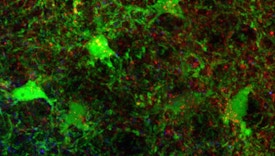
Susanne Schmid has a broad background in biology, physiology and synaptic plasticity, with specific training and expertise in electrophysiology, animal behavior and histological analysis. Her research has been focusing on cellular and molecular mechanisms underlying sensory filtering in mammals (i.e., habituation and prepulse inhibition) for more than a decade. She has been combining different levels of analysis, ranging from patch-clamp recordings in slices, pharmacology and immunohistochemistry, to cognitive testing of healthy animals and animal models for disease, including optogentic and DREADDS approaches, in order to decipher neuronal mechanisms underlying these fundamental processes.
Schmid has a long-standing track record as Principle Investigator or co-Investigator on several university-, provincial-, foundational- and federal-funded grants, through which she identified synaptic-plasticity mechanisms underlying habituation and contributed significant work identifying the circuitry mediating prepulse inhibition. This laid the groundwork for this research project that will use this basic knowledge to translate it into a disease model in order to advance treatment options for people with autism spectrum disorders. The current application (and a parallel project conducted in humans) builds logically on her prior work.


